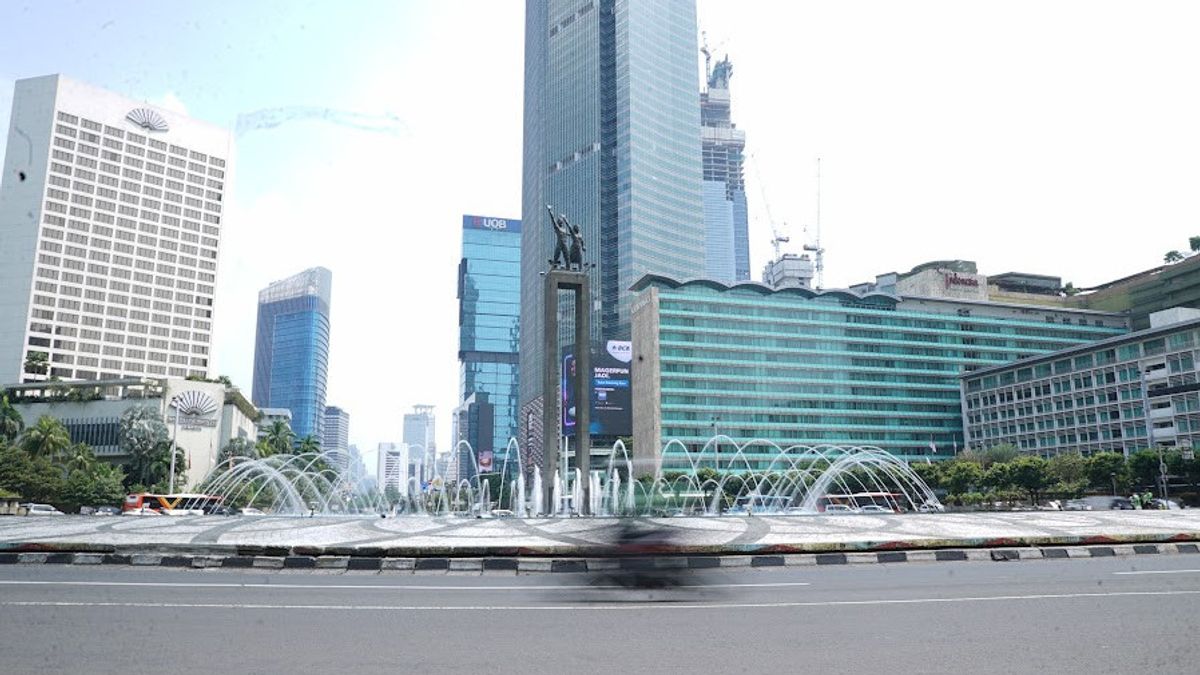JAKARTA - The Meteorology, Climatology and Geophysics Agency (BMKG) appealed to all parties to save water use in line with some parts of Indonesia entering the dry season.
"All parties are requested to save on the use of water, if there is still rain in some areas, please immediately harvest it, several groups in areas that have harvested rain please continue to be carried out," said Head of BMKG Dwikorita Karnawati at a press conference on the development of El Nino which was attended online in Jakarta, Tuesday, June 6, quoted by Antara.
He revealed, based on BMKG analysis of 28 percent or 194 season zones in Indonesia, the dry season has now entered, including DKI Jakarta.
He explained that the area includes eastern Aceh, eastern North Sumatra, eastern Riau, southern Bengkulu, southern Lampung, northern Banten, northern DKI Jakarta, northern West Java.
Then, parts of Central Java, parts of East Java, parts of Bali, NTB, and NTT, parts of Gorontalo, parts of Central Sulawesi, parts of the Maluku Islands, and parts of North Maluku.
"Not all of them are entering the dry season, but soon in July, August, September, the territory will increase," he said.
Dwikorita explained that the factors that influence Indonesia's territory experience dryness which ultimately has an impact on drought, namely the existence of two climate phenomena that occur simultaneously, namely El Nino and the Indian Ocean Dipole (IOD) being positive.
"The impact of these two phenomena is that the decrease in rainfall in some parts of Indonesia, even some parts of Indonesia will experience dryer rainfall below normal," he said.
He said El Nino was controlled by sea level temperatures in the Pacific ocean, while the IOD was controlled by sea level temperatures in the Indian Ocean region.
"The two phenomena occurred simultaneously in 2019. Both of them currently lead to conditions that cause Indonesian territory to become drier, so both of them strengthen each other", he said.
Dwikorita predicts the same impact as in 2019, it will occur starting in the second half of 2023.
"So all parties ask to take more aggressive steps to anticipate areas that are predicted to experience dry conditions or low rainfall that can trigger drought and forest and land fires or further impacts," he concluded.
VOIR éGALEMENT:
The English, Chinese, Japanese, Arabic, and French versions are automatically generated by the AI. So there may still be inaccuracies in translating, please always see Indonesian as our main language. (system supported by DigitalSiber.id)
Tags les plus populaires
#Prabowo Subianto #Nouvel An #accident d’avion #Hasto Kristiyanto #nataru #squid game 2Populaire
01 Januari 2025, 01:09
01 Januari 2025, 00:15



















